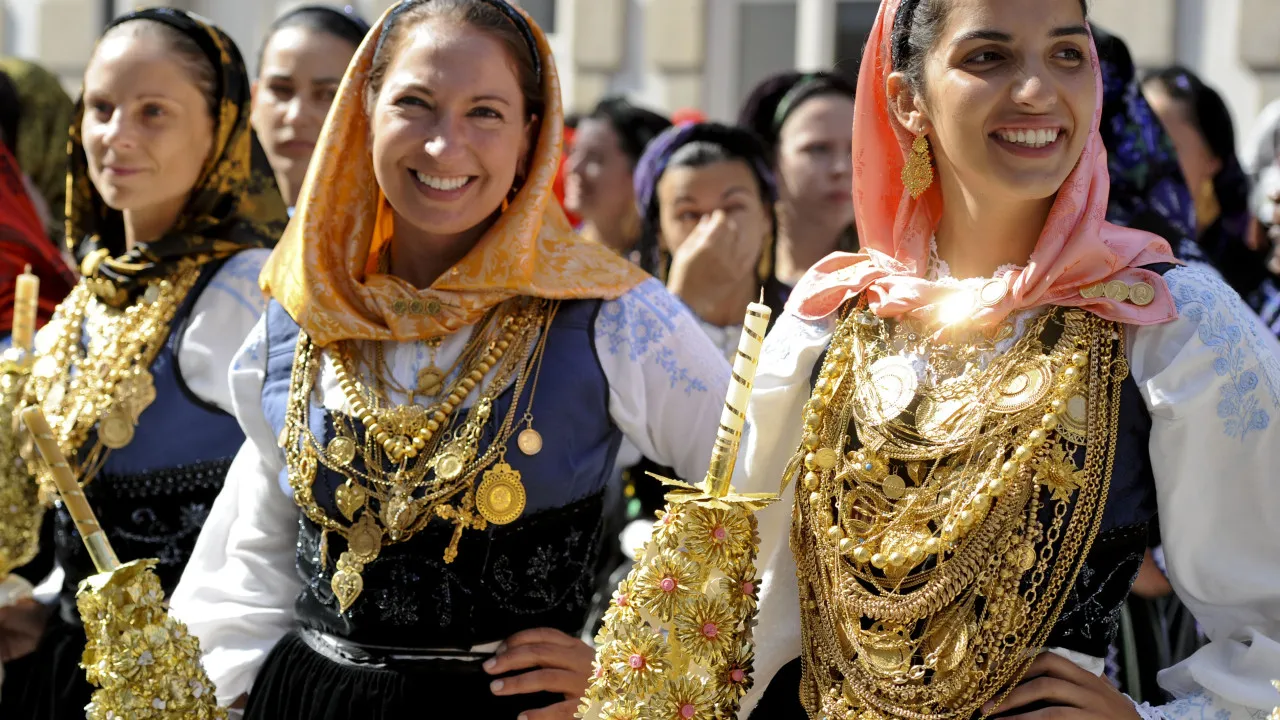
The group is calling for the inclusion of local women in 2025, emphasizing the importance of representing their homeland with pride and authenticity. This appeal follows the rapid filling of 1,000 spots for the parade, which were claimed in just two days out of the 15 allotted by the organizers.
“The Romaria d’Agonia is not a showcase of vanity or a stage for influencers. It is above all an act of belonging, memory, and cultural continuity,” the statement asserts.
The movement aims to unify the women of Viana, both registered and unregistered, in their fight for the right to participate in the parade, ensuring the tradition is maintained by women who embody Vianese tradition.
“Many of the women now excluded have paraded for decades, investing in costumes, gold, and heritage. Entire families have silently contributed for generations to keep the spirit of the pilgrimage alive,” they explain.
The movement’s objective is to safeguard the participation of women who are the face of the festival and descendants of those who began this tradition in various parishes of Viana do Castelo.
“There cannot be a Desfile da Mordomia without the true Vianese pride, which belongs only to us,” they affirm.
Somos Todas Mordomia also proposes that the registration process initially prioritizes women who are natives or residents of Viana do Castelo, with remaining spots later opened to participants from other regions.
The movement expresses deep regret that the organization seems more focused on internationalizing the tradition, akin to a carnival parade, rather than preserving the cultural essence in each costume and gold piece unique to Vianese women.
“Our movement consists of diverse women, some who managed to register and others who did not have the opportunity. We are united by a common purpose: to defend our place in a tradition that belongs to us,” they state.
Somos Todas Mordomia recalls that registrations opened at midnight on June 16, with a cap of 1,000 slots.
“To everyone’s surprise, they were fully booked in just over 48 hours. Many Vianese attempted to register on June 18, the third day of the process (which was supposed to last until June 30), only to find registrations had closed early. Official communication about the closing was only released at 9:00 PM that day, generating frustration and indignation among those who, in good faith, believed they could still participate,” they report.
On July 16, at 8:00 PM, 32 additional slots were opened. However, it remains unclear how these were filled; some women managed to register while others reported technical issues without receiving responses or compensation from the organizers.
The group emphasizes that it was the Vianese women “who ensured the Vianese tradition endured until now, participating in a parade that was not always desirable and whose participation the organization begged for years.”
“These are the same women now demanding recognition and respect, as they participated faithfully every year when the organization needed numbers. Now they are being overlooked because the ‘numbers’ the organizers sought are already met, with no concern about who would fill these spots,” they declare.
Attempts were made to obtain further details from VianaFestas, which organizes the Romaria d’Agonia, with a press conference announced for Friday.




